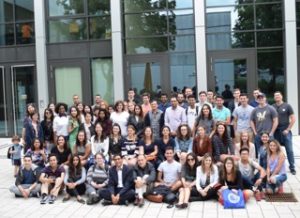Department of Labor Fiduciary Rule: The Good, the Bad, and the Ugly
The Department of Labor passed a new Fiduciary rule on June 9, 2017, that has shaken up the investment and retirement-advice market. The new rule holds financial advisers who provide investment advice and recommendations in retirement accounts to a fiduciary standard. This fiduciary standard, the on-going duty of care and loyalty, is higher than the previous suitability standard which only required that the investment advice or product was suitable at the time of recommendation. Therefore, when advisers are providing investment advice, they must act in the best interest of their clients in retirement accounts.
The Good: For investors, this new DOL rule should have been passed years ago because as clients, no one wants to be deceived or oversold on unnecessary products. With this new rule’s soft implementation on June 9, an investor can sue an advisor for breaching the fiduciary standard and will have a better chance of winning in court because of that contractual obligation. The obligation instilled in the DOL’s standards “are formal obligations to serve clients’ best interests, to charge only reasonable compensation and to avoid misleading statements,” according to InvestmentNews’ Fiduciary Corner blog by Blaine Akin.
The Bad: For many companies, the DOL rule comes with risks of lawsuits and legal complaints by investors who believe that they have been harmed by a financial adviser’s advice or recommendation of investment. For some companies, the DOL rule has instilled a fear of class-action lawsuits that has caused them to go as far as eliminating certain types of products that their advisers can sell to investors, thus removing the slight risk of conflict of interest which potentially reduces the amount of revenue.
The Ugly: The answer that remains unknown is whether the DOL rule is here to stay. Currently, under the Trump Administration, the DOL rule is undergoing review which could lead to repeal or modification. One argument is that the DOL rule is too complex and costly, and is dangerously close to entering the regulatory space that is traditionally governed by the Securities Exchange Commission. SEC Chair Jay Clayton submitted a six-page comment request asserting that the SEC should govern this regulatory space as provided by the Dodd-Frank financial reform law. On June 1, Clayton reached out to DOL Secretary Alexander Acosta to “engage constructively as the Commission moves forward with its examination of the standards of conduct applicable to investment advisers and broker-dealers.”
With many opinions and speculations surrounding the DOL rule, there are only three possibilities ahead: (a) nothing will be changed and the hard implementation will begin next year, (b) there will be changes made to the proposed rule, or (c) the rule will be entirely rescinded. As of now, there are signs that indicate that the final effective date of January 1, 2018, will likely be pushed back with expected changes to the rule. One of those signs is that the House Committee on Education and the Workforce approved legislation that would replace the DOL rule and the House Appropriations Committee approved a DOL spending bill that would prevent funding that enforces the fiduciary rule. Although this indicates that the House plans to kill the DOL rule, there is still no telling what the outcome will be.


